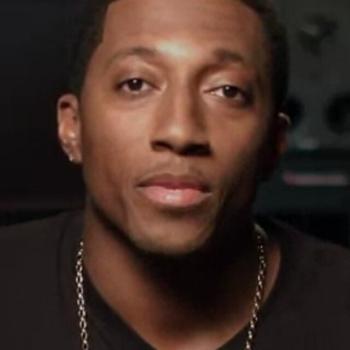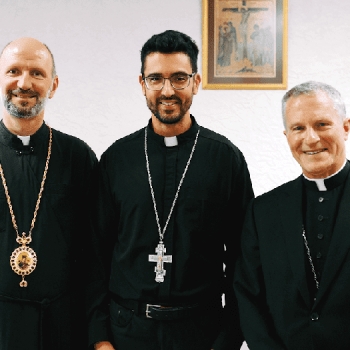It is fair to say that if any of us saw a twenty-first century Abraham raising the knife on the roof of his apartment building, we could call the police; we would wrestle him down; even if we saw him lower the knife at the last minute, we would expect the Department of Children and Family Services to take Isaac away and charge Abraham with child abuse. We would do so because God doesn't reveal Himself or His angels to all of us in a single moment. We do not hear what Abraham hears, do not see what Abraham sees, true as those experiences may be. So the best we can do is act in accordance with those things that are possible for all of us to know, understanding that part of what we know to be true -- as individuals or communities of faith -- will be true for us alone.
In short, we can neither hear the divine voice others claim to hear, nor rely on others' assertions that they have heard God's voice. Humanists and many others also do not believe in the claimed divinity of holy texts, or hold confidence in claims to faith. Even different religions, some more similar than not, disagree about such matters.
The solution is this: one has the right to hold and act on his or her religious beliefs, but in a society in which different people have different values, and laws influence a diverse population, purely religious reasons are ideally not to be employed. Of course, in a religion-heavy society such as ours, religious reasons will surely enter the public square. The answer is not to ask the religious to leave their beliefs at home as "personal," or else to dismiss them as outright absurd, barred from discussion. Instead, all beliefs that influence social or political affairs should be exposed to critical reasoning; and moreover, reasons for those beliefs must be clear and understandable to all citizens -- not just members of one religious sect. At the least, this approach to moral discourse gets reasons flowing in clear view. At the most, it will help foster a more reasonable, humanistic approach to morality, and perhaps even more generally, life.
Michael De Dora is executive director at the think tank Center for Inquiry in New York City. Michael has a Master's degree in political science from CUNY-Brooklyn College, and a Bachelor's degree in Rhetoric and Communication at SUNY-Albany. He writes essays on moral and political philosophy for his blog, Democratic Discourse, and philosopher Massimo Pigliucci's blog, Rationally Speaking. Michael was previously a news writer and editor at both FOXNews.com and the City University of New York.




